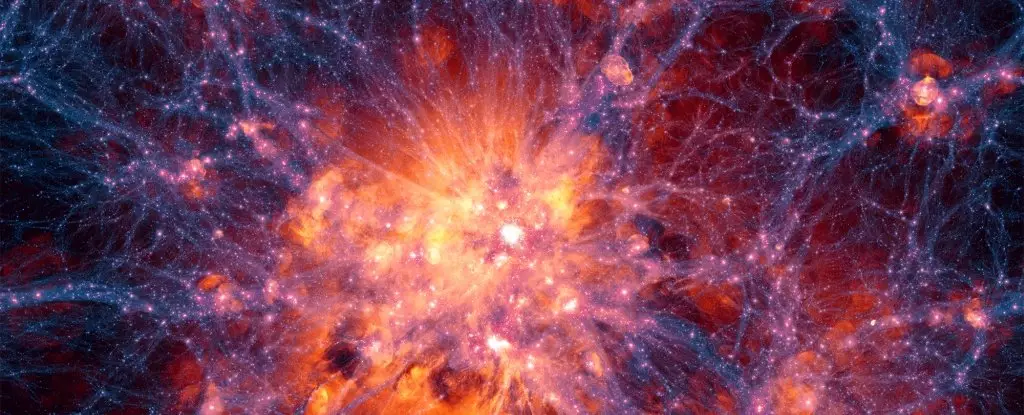The enigma of dark matter is one of the most daunting challenges faced by modern astrophysics. It is a substance that governs the universe’s structure yet remains imperceptible to direct observation. Researchers at the University of Southampton in the UK are spearheading an innovative approach that leverages microgravity to deepen our understanding of dark matter. With the imminent launch of their unconventional experiment aboard the Jovian-1 satellite, scientists hope to shed light on this mysterious cosmic phenomenon.
The implication of dark matter in our universe is profound. The observable universe comprises stars, planets, and other baryonic matter, but this visible matter accounts for only a fraction of the total gravitational influence detected by astronomers. Critical anomalies arise when studying galaxies; their rotation speeds exceed what would be expected based solely on the visible mass. This discrepancy alludes to a far more significant and invisible component—dark matter, which researchers estimate to dominate the universe’s mass-energy content by a ratio of roughly six to one.
The realization that dark matter exists has brought about a myriad of theories regarding its composition and nature. However, all current methodologies have failed to reveal any direct evidence of dark matter, as it does not emit light or interact with electromagnetic forces in detectable ways. Instead, its presence is known primarily through its gravitational effects on visible matter.
To address this knowledge gap, the physicists at Southampton have devised a groundbreaking experiment that will test their hypotheses away from the influences of Earth’s atmosphere. Their approach involves levitating sheets of graphite using magnetic fields in a microgravity environment, specifically on a mission set to launch in early 2026. By suspending graphite and measuring its interactions, the team anticipates potentially detecting a “dark wind”—an effect created if dark matter particles exert a force on the levitated material.
Physicist Tim Fuchs emphasizes the unprecedented nature of this endeavor, stating that the sensitivity provided by the zero-gravity environment will allow for the detection of minuscule interactions that might otherwise remain hidden on Earth. If the density of dark matter in the vicinity is significant, the experiment may provide the first quantifiable evidence of its presence, thus marking a historic moment in astrophysics.
The Jovian-1 satellite will serve as a platform not only for this ground-breaking experiment but also for additional research designed by students from various UK institutions, including the University of Portsmouth and Surrey University. This collaborative spirit is crucial, as it fosters innovation among young researchers while addressing one of the greatest scientific mysteries of our time.
Fuchs and his colleagues are hopeful that the results of this two-year mission, irrespective of whether a dark matter interaction is detected, will inform future research. The absence of evidence might even help refine theories regarding dark matter, leading to a broader understanding of its properties and the conditions required for detection. As Fuchs suggests, there is a possibility that traditional Earth-bound experiments fall short because dark matter interactions may not penetrate the atmosphere effectively, an avenue ripe for exploration.
The launch of Jovian-1 marks a critical step toward decoding the complexities of dark matter. As scientific methods evolve, so too do our chances of revealing the secrets of the cosmos. Although the anticipated findings might not come swiftly, the effort invested in this mission will bolster our understanding of both dark matter and the universe itself.
To many, the prospect of uncovering dark matter is captivating, and Fuchs’ experiment represents a bold foray into the unknown. The determination exhibited by researchers, coupled with technological advancements enabling such innovative studies in microgravity, offers hope that the mysteries governing our universe may one day be elucidated. The quest for dark matter continues, and with each new experiment launched, we edge closer to understanding the very fabric of existence.

